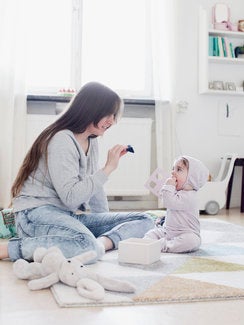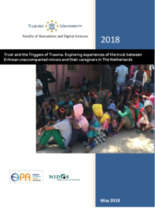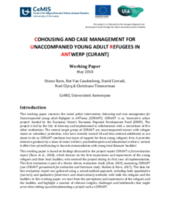

Displaying 191 - 200 of 412
In this paper, the authors examine the reunification patterns of children left‐behind by parents who migrated to France and Spain in order to understand whether children from standard two‐parent families differ in their chances of joining their migrant parents in the destination country compared to children in non‐standard families (single parent and blended families), as well as the potential role of immigration policies on these chances.
The objectives of this Conference are to:
This chapter from Migration between Africa and Europe investigates family life in the context of international migration between Ghana and Europe. The chapter finds that transnational family forms, in which one or more members of the nuclear family are living abroad while the other members remain in the home or another country, are common.
This report focuses on trust relations of Eritrean minors who arrived without the company of their parents to The Netherlands and the people who are taking care of them.
This working paper is based on findings discussed in the project report CURANT: a first evaluation report (Ravn et al., 2018), which focuses on the first impressions and experiences of the young refugees and their local buddies, who entered the project during its first year of implementation.
The UNAIDS Inter Agency Task Team (IATT) for Social Protection, Care and Support will join representatives from governments, donors, academicians and civil society from 25– 26 April 2018 for the International Conference on Fast-Tracking Social Protection to end AIDS.
Drawing upon in‐depth interviews with 12 parents of adolescent girls with multiple and complex needs in residential child welfare, this exploratory study describes parents' own needs and preferences with regard to care delivery.
The study consisted of a comparative follow-up study with a pretest-posttest design which explored the association between baseline child, family, and care characteristics and the psychosocial development of 121 schoolaged Dutch children during their first year of placement in foster care (FC), family-style group care (FGC), and residential care (RC).
This study aims to facilitate further identification of the consequences of parental burnout for the parents themselves, their spouses and their child(ren).
Based on an analysis of the evolutions in the way the care structures for unaccompanied minors were set up in Belgium, the authors of this article critically reflect on the underlying rationales that justify the particularities of these structures, hereby also reflecting about the implications of these rationales for professionals and researchers.


